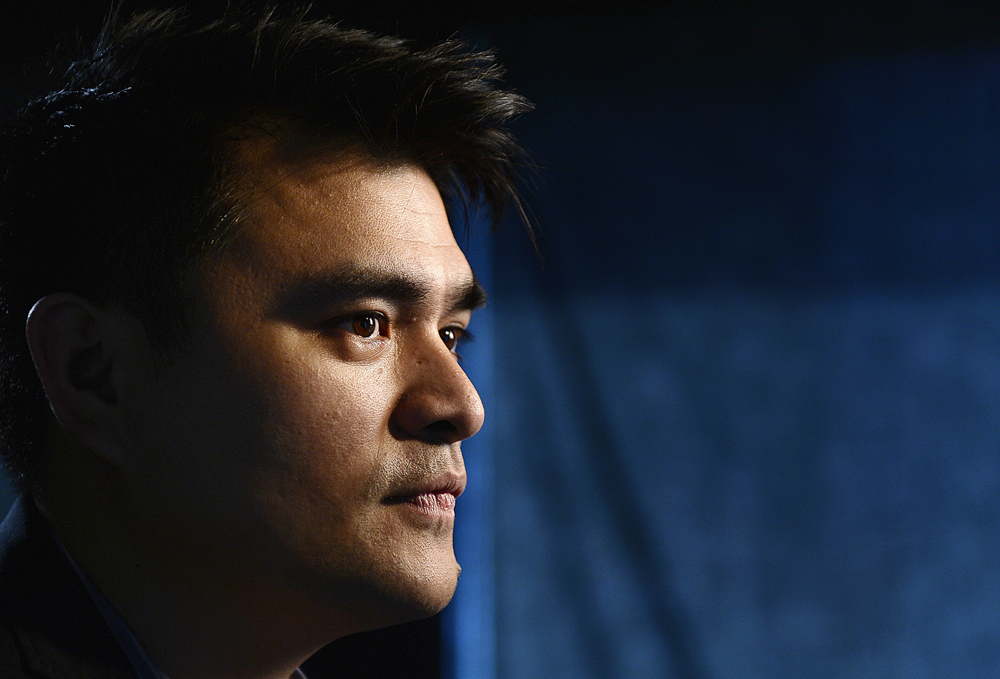By Alexis Mansanarez
Northwest Asian Weekly

Jose Antonio Vargas
Words matter. That was the message Jose Antonio Vargas shared in front of an at-capacity University of Washington (UW) lecture hall Oct. 6, and a phrase that has framed his career.
Vargas elaborated on the complexity of migration and population changes within the United States, and used his own story to challenge the audience to look at undocumented immigration as a human rights issue.
“Immigration is not a black and white issue for many of us, it never is and it never was,” he said. “The human stories insist on the very complexity and the opportunity and the necessity to disrupt the narrative in which people think of immigrants.”
Vargas, a filmmaker and Pulitzer Prize-winning journalist, centers his work on the changing American identity. The native of the Philippines openly shared his status as an undocumented immigrant, and has been working through two media organizations he founded — Define American and #EmergingUS, the first media company to be founded and run by an undocumented immigrant — to help create a new narrative.
“In this country, it is now culturally unacceptable to be anti-gay, but it’s totally acceptable, if not welcome, to be anti-immigrant,” Vargas said. “You can actually win the White House for it. So, how do we change the culture around people understanding immigration?”
Vargas creates a space to answer these questions in Define American and #EmergingUW. He uses his multimedia platforms to create a culture change by sharing stories that challenged the narrative, like the story of Sophie Cruz, a 5-year-old who famously ran up to Pope Francis in the middle of a parade to deliver her message of political and social change.
UW opened Kane Hall to students, faculty, and community members for its inaugural event.
“This was inspired by President Ana Mari Cauce’s vision, and it was also inspired by all of you,” said David Eaton, Vice Provost and Dean of UW Graduate School, addressing the audience at the beginning of the event.
Shortly after Cauce was named the university’s interim president, the Race & Equity Initiative was born. Since the spring of 2015, the initiative was put in place to help address personal biases that often go unchecked — in this case the power of words.
Vargas launched a campaign addressing that very issue. #WordsMatter challenges media outlets to reframe the culturally accepted rhetoric by not referring to any person as “illegal,” and creating spaces without such harsh labels.
He feels most comfortable creating that space through his work as a filmmaker and journalist. In some of his groundbreaking work, such as “Documented” — a 2013 documentary feature chronicling his experience as an undocumented immigrant — and “White People” — a 2015 documentary that aired on MTV highlighting what it means to be white in America — Vargas asks and tries to answer some telling questions of America’s views on immigration.
“The questions never end and in some ways, the questions are more important than the answers,” he said. “The questions we ask shape the answer. So in many ways, being a journalist was my justification for existing and my way of making sense of my adoptive home.”
Vargas came to America when he was 12 years old. His mother dropped him off at an airport in the Philippines and a coyote — a person who assists in smuggling individuals across borders often at a high cost — helped Vargas get to Mountain View, Calif. His grandparents cared for him until he entered college, where he pursued his passion for storytelling.
Vargas was introduced to journalism in high school and built his career through college by working for the San Francisco Chronicle.
“As a journalist and a filmmaker, this is the space — I know how to create change in this space,” Vargas said. “Storytelling is at the heart of what I do. I believe that storytelling — we tell stories because we get to tell people this is more complex than black or white.”
“We tell stories to create spaces for empathy,” he continued. “And I would argue that by and large, the American public does not understand what this issue is or what it means to people like us.”
Alexis can be reached at info@nwasianweekly.com.



